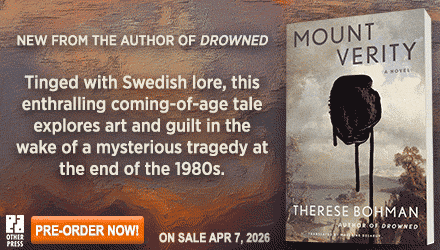I'm often tempted by virtual detours on this trip and found one I couldn't resist in last Friday's edition of
Shelf Awareness. When I learned that Tuttle Antiquarian Books was closing after 174 years in business, I followed a link to the
Rutland Herald article,
which reported: " 'The reason for closing was the effects of the
Internet.' Jon Mayo said Wednesday while watching workers load books
onto a truck bound for Maine. 'We think that's what did us in.' "
I will mourn this bookstore's passing, and I understand Mayo's fatalism
about the chaotic used book industry. A funeral is a time for eulogy
rather than autopsy. On the other hand, exploring ways to be
competitive and creative online is the essence of our site-seeing
journey here, and there is a lesson in this loss.
I lived in Rutland from 1973 until 1997, so I knew the bookshop well.
Tuttle Antiquarian Books wasn't a particularly welcoming place, though
I tolerated its laissez-faire attitude toward customer service. I
didn't mind being left alone to explore room upon musty room of
book-laden shelves, and I will be in their debt forever because I
discovered the wonders of Asian literature and art in that quaint
Vermont bookshop.
Charles Tuttle, who died in 1993, was serving as an American soldier in
Tokyo after World War II when he fell in love with Japanese culture. He
made it his life's mission to introduce this world to American readers.
In addition to their extensive used book inventory, Tuttle Antiquarian
Books displayed and sold an array of new titles from
Tuttle Publishing, which still exists as an imprint of
Periplus Publishing Group.
One of many books I bought new there was
Zen Art for Meditation by Stewart Holmes and Chimyo Horioka (1973). As I write these words, that copy
is on my desk, open to page 25 and a reproduction of "
Bare Willows and
Distant Mountains." On the facing page, a commentary begins, "How
remote from the everyday world this landscape seems!"
I felt the same way about Tuttle Antiquarian Books, and yet it was in
those isolated Vermont rooms that I discovered an even more remote
world. Call it a low-tech precursor to the global village.
I haven't visited the bookshop for more than a decade, so its demise is
like the sudden death of a long-neglected uncle. I feel a little
guilty, but in this case it is balanced (yin and yang, a concept I
first learned reading Tuttle publications) with a dose of frustration.
According to the
Herald, Mayo, who began working at Tuttle in 1957 and
became co-owner five years ago, felt that "consumer buying and selling
habits had changed to the point where Tuttle couldn't compete with
eBay, Amazon and everyone else in between." (Many booksellers, large as
well as small, utilize ebay and Amazon to
enhance their used book
sales, but this factor was not addressed in the article.) Mayo added
that "it's impossible to compete with someone who can sell their books
from their living room."
That the current owner of Tuttle Antiquarian Books viewed the Internet
as an enemy rather than a tool is worth considering, especially in
light of Charles Tuttle's undeniable pedigree as a publishing industry
visionary.
For years, I thought the reason there was so little interaction between
staff and customers at Tuttle Antiquarian Books must be because their
business was conducted primarily through mail order. I imagined them
nurturing worldwide customer relationships--the
84 Charing Cross Road
effect. I would have assumed that a mailing list like Tuttle's, built
decade upon decade, positioned them to make a profitable transition to
the Web.
I would have been wrong.
Tuttle's Web page is now its headstone.
What if, instead of being gradually swept aside by the "long tail" of
Internet used book dealers selling out of their living rooms, Tuttle
Antiquarian Books (and many other bookshops, for that matter) had
approached the Web with the same innovative vision that Charles Tuttle
exhibited when he found himself seduced by Japanese culture in postwar
Tokyo?
Many years ago, I met the Mr. Tuttle on a golf course and I thanked him personally for the new world he had given me.
I'm still grateful, but a little sadder.--
Robert Gray (column archives available at
Fresh Eyes Now)








